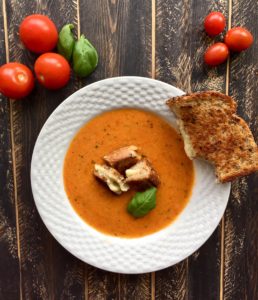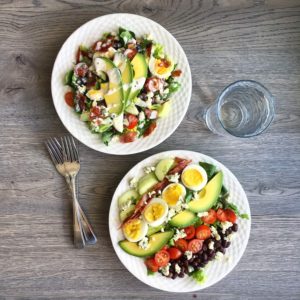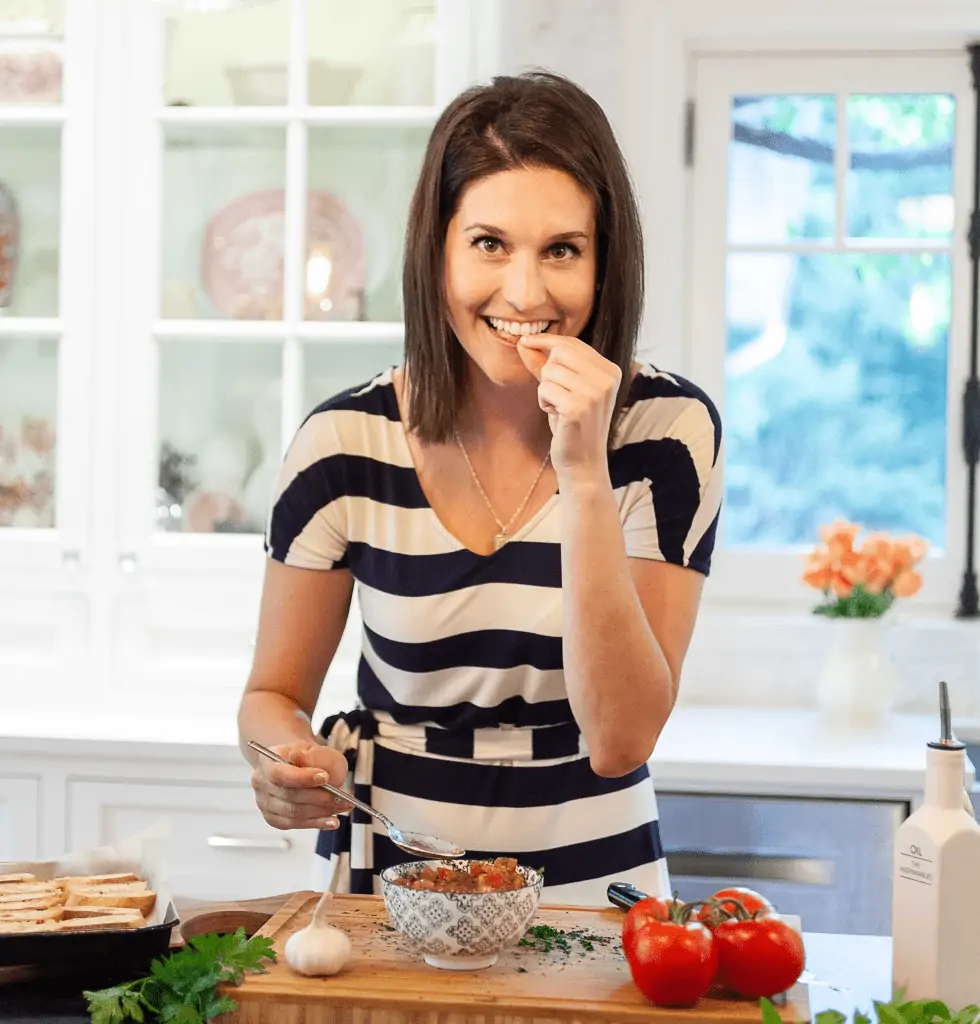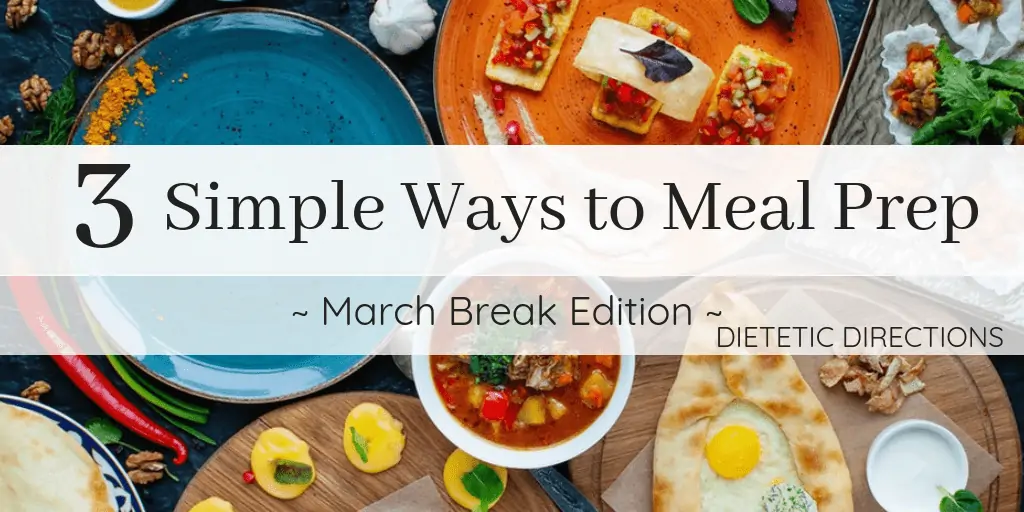
3 Simple Ways to Meal Prep
~March Break Edition~
Many of our clients seek meal prep guidance. They want to eat better by learning how to set themselves up for success in the kitchen. They want to eat out less and want lower meal assembly stress. We get it. Therefore, to celebrate Nutrition Month, I will share 3 Simple Ways to Meal Prep. I will also share meal prep benefits and what beginners need to consider before getting started!
This post was sponsored by the Egg Farmers of Ontario and Canola Eat Well; as always, all opinions are genuine.

First, let’s acknowledge that healthy eating does not happen by accident. With our hectic schedules, our default is that we will be unprepared and undecided. In which case, actually putting time into meal preparation (a.k.a. “meal prep”) allows us to be both prepared and decided.
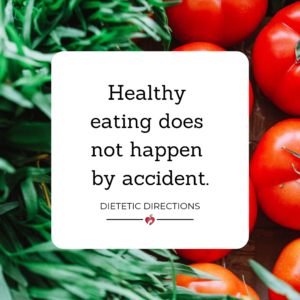
What is Meal Prep?
To prepare meals or components of meals (i.e., cutting vegetables, cooking rice or meats/protein) in advance. This way, you can enjoy a speedy meal without any or much prep.
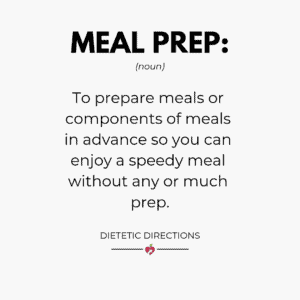
Top 5 Benefits of Meal Prep:
- Saves time! – Cook twice as much in less than twice the time. Having foods on hand saves grocery trips and can be faster than take-out.
- Spend less $$ – Cooking at home simply costs less than eating out. Click here for tips on how to save money when buying groceries.
- Improved nutrition – Planning and home cooking equates to healthier meals with more veggies, lower salt and total calories. If weight loss is a goal, then cooking is a powerful tool to decrease caloric intake.
- Less stress! – Preparing foods in advance cuts down on the stress of decision making. Decision fatigue is a real thing! Having foods ready can significantly improve the mental clutter of last-minute meal decisions.
- The process becomes easier. – Additionally, we tend to increase variety of food choices when we become more comfortable with meal prepping.
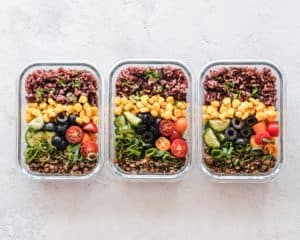
3 Tips Before Starting Meal Prep:
1. Dedicate Time:
First, we need to dedicate time. As previously mentioned, healthy eating (and homemade meals) do not happen by accident. This is not our default with busy schedules, various commitments and limited energy reserves.

To start, decide if meal prepping is something you want. It’s not for everyone. This question is often overlooked when we attempt change for external reasons such as our doctor telling us to lose weight or our personal trainer telling us to have a pre-workout snack. When we’re ready for change, we do it because we want/need it. We make the decision for ourselves.
Sustainable change means there is consistency in effort. If you want to continue doing a new habit or want a lifestyle change to stick, make sure it’s realistic and fits in your schedule.
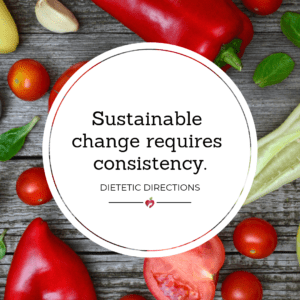
2. Start Small:
Habit-change is like going up a ladder. You need to start at the first rung and avoid skipping rungs to get to the top. You can take a flying leap but you’re likely to fall down or to feel too tired to continue. Making meal prep change requires setting your ego aside and not comparing yourself to others. Therefore, take caution when looking at images of picture-perfect food on Instagram and Pinterest. You do not have to create a week’s worth of social-media-worthy meals to start meal prepping! Start where you can with what you have.

Next, be specific with when your meal prep will happen. Start small. You might decide to dedicate 20 to 30 minutes on a Sunday to prepare meals or partial components of meals. You could even start with less if you’re short on time. The amount of time you dedicate can start wherever, and then you can see if longer meal prep is feasible and enjoyable. Remember, the key is the consistency. If you do just a little bit every week you’re still getting ahead.
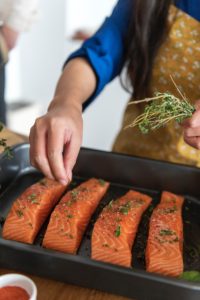
3. Reward yourself!
When creating a new habit, our brain naturally looks for a reward or benefit. If it receives pleasure, it is likely to remember and crave this again – thus, making us likely to repeat the new habit. For example, when people have increased energy and happy hormones after spinning/yoga/boxing classes, they may crave those endorphins and start going to the class consistently. Before they know it, they’ve fully formed a new healthy habit.
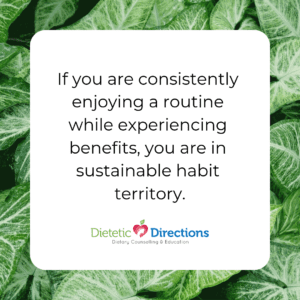
Another tip is to seek “non-food rewards” after your meal prep work is done. If you spend 20 minutes food prepping and want to reward yourself, see what would make your soul happy afterwards or during the meal-prepping routine. Would you enjoy listening to your favourite sing-along music, or meal prepping while chatting with a friend? Perhaps after Sunday meal prep, you want to reward yourself with a warm bubble bath. Ask if your partner, children, or friends want to join and spend time connecting! Nevertheless, reward yourself with non-food rewards that speak to you. Many of our clients use stickers for rewards, and they work!

Dietitian Tip: I recommend clients not set weight loss as a reward. This may be an outcome (of continued lifestyle habits) but research shows the most sustainable habits have internal rewards – like mood, energy, vitality, etc.
Andrea’s 3 Simple Ways to Meal Prep:
1.Veggie Prep!
You have probably heard of veggie prep from Instagram or Pinterest. It’s a trendy way to make healthy meals and increase your veggie intake. Beginners should not strive for extremely productive levels.We simply want to set intention to get started and make cooking easier.
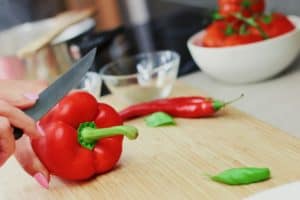
To start, choose one or two veggies you want to cut and put in containers. For example:
- Chop peppers – I find that as soon as I have peppers chopped and in containers, they become easier to add to meals. For example, add chopped pepper to stir-fry, omelettes, soups, pasta sauce, quiche, pizzas, etc.
Dietitian TIP: Freeze chopped veggies. A plastic bag filled with chopped veggies is handy for adding to meals. Whereas, fresh chopped veggies usually last in the fridge for about four days.
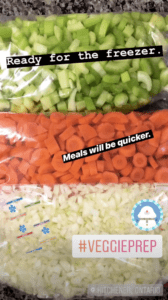
- A benefit of veggie prep is that you can roast veggies and use as part of quick meal or store in the fridge or freezer. Click here for more ideas and recipes using roasted veggies.
- When home from work, coat your chopped veggies (like bell peppers) with Canadian-grown canola oil so they look glossy. Add a pinch of kosher salt and dried herbs/spices.
- The neutral state of canola also allows the veggies to speak for themselves and these monounsaturated fats are heart-healthy.
Dietitian TIP: Whenever roasting, or cooking at high temperatures, choose an oil with a high smoke point. This is the temperature where the oil starts to burn and smoke which can destroy the nutrients in oil. I use canola for roasting because it has a very high smoke point of 468 F.
- Roasted peppers can be added to a slice of toasted naan with hummus for a quick meal. You can use them as a flavour booster for tomato sauce, quiches, omelettes or to make this Roasted Tomato and Pepper Soup.
- Meal-prep pre-cut veggies like carrots and portion them into lunch-sized containers. This way you can easily toss them into lunches in the morning. Spent time up front to save time later.
- Pre-washed versatile greens – I am on a big spinach kick right now for the reason that you can add it to dishes or you can enjoy it raw as a salad. Kale and arugula are other greens that you eat both raw or cooked.
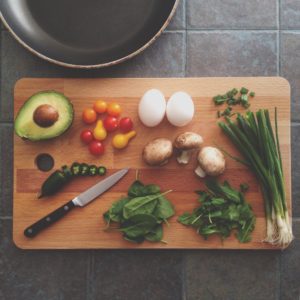
- Veggie prep could involve chopping onions. Store in the fridge for 7 to 10 days or store in freezer for about six months. I absolutely hate chopping onions, so when I do, I always toss extra into the freezer and they’re ready for future meals!
2. Protein Prep!
We know that our bodies need protein for slowing the release of blood sugar, as well as growing and re-synthesizing muscles.Protein helps us feel full longer. We want to include protein at all meals according to the New Canada’s Food Guide. Also, include protein when power snacking. Click here to learn how to snack like a dietitian.
To start protein prepping, choose one or two proteins to prepare:
- Hard-cook eggs – This is my go-to meal prep option. They last in the fridge for seven days and can easily be added to breakfasts, snacks or really any meal for a protein boost. There are 6 grams of protein. Don’t skip the yolk or you’ll miss half the protein and most of the nutrition.
DYK? Eggs go from the farm to the grocery store in four to seven days.
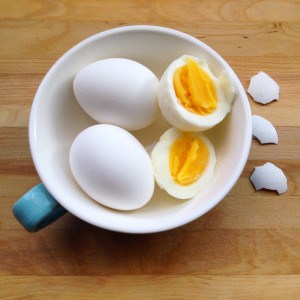
Try adding your prepped hard-cooked eggs to cobb salad, Buddha Bowls, avocado toast, potato salad, to name a few of my recipes. Also, you can try eggs in a ramen soup. For a grab-and-go snack, pair a piece of fruit with an egg.
- Rotisserie chicken – if you do not want to spend time marinating chicken and baking it, buy a rotisserie chicken. These go half price at some grocery stores in the evening and you can pick it apart and store it in containers or bags. Later, it’s ready to be used for chicken salad sandwiches, in a wrap or added to sauces, soups or Chinese Fried rice.
- Lupini beans – I love these! You can buy them in a jar and simply rinse and portion. Enjoy them as a snack or add them to meals for a protein and fibre boost.
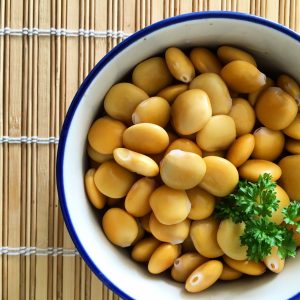
- Roast chickpeas – These leftovers make a great snack or can be added to meal or used as salad topper.
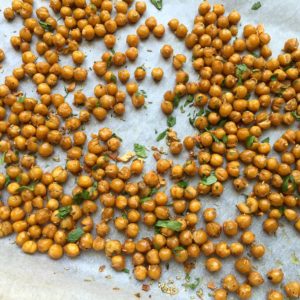
- Grate cheese and put in container in the fridge for easy use for quesadilla, tuna melt, naan pizzas, etc.
3. Carb Prep!
We know carbohydrates are important for our muscles, for energy and for preventing those sugar cravings. If you are still hating on carbs from proponents of the Atkins diet, read my blog In Defence of Carbs: Stop the Hating. Read here about Canada’s New Food Guide and how each meal has a grain or starch (carbohydrate) component.
To get started with carb prep, choose one or two carbs in advance.
- Cook a batch of a whole grain such as brown rice, quinoa, bulgur, or couscous. Allow to cool and set aside in the fridge. You can use these as a topper for entrée salad, make a cold salad like Greek quinoa salad, or use the rice to make a Chinese fried rice. Other options are using whole grains as a base for a curry or in a Mexican Buddha Bowl.
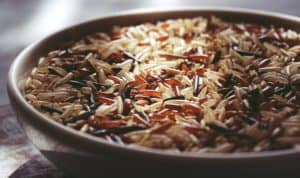
- Cut potatoes – I love to use the little red skinned potatoes and give them a good rub so that I can leave the skin on for extra fibre and potassium. If your potatoes are cut in advance, you can easily toss them in canola oil and pop them in the oven and make Rosemary Roasted Potatoes when home from work. You can also boil water and make a mashed potato in under 20 minutes.
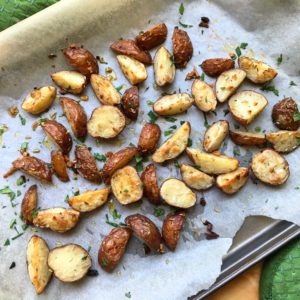
- Cut and peel sweet potatoes for an easy vitamin A boost. Enjoy some sweet potato fries, sweet potato mash or Sweet Potato Pear Soup. Reminder to cut onions and other ingredients in advance for quick meal assembly. You can then freeze leftover soup.
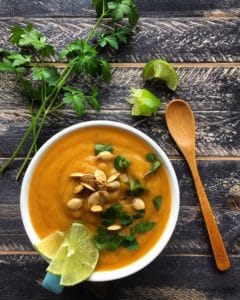
The time you spend on meal prep will benefit you with quicker meals, less stress, a healthier diet, and more money in your pocket.
Bottom Line:
Meal prep involves preparing meals (or components of meals) in advance for a speedy meals assembly or heating. This powerful strategy sets you up for healthy eating success. Invest some time and your future self will thank you!

Be sure to start small and reward yourself along the way! For beginners, meal prep one or two components of meals. You’ll enjoy quicker meals, less stress, a healthier diet, and more money in your pocket.

Now it’s your turn. Have you started meal planning? What are your favourite meals to prep? What’s your style? How do you reward yourself? Any words of encouragement for or from meal prep newbies?
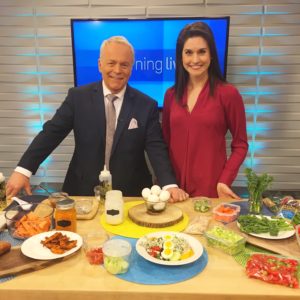
P.S., In case you missed it, check out Andrea talking about Meal Prep on CHCH Morning Live!

